The increasing population in the world forces humans to improve farm yields using advanced farming methods. Rising pressure on ecosystems, such as climate change and soil erosion, is affecting farming today. Thus, the shift towards precision sustainable agriculture is key in addressing environmental challenges and in unlocking unseized market potential. Precision agriculture/farming embodies agriculture practices adaptation towards maximum crop yield using minimum resources like water, fertilizers, pesticides, and herbicides. Adding new technologies to provide integrated and tailored solutions for farmers as well as driving digitalization and sustainability will be at the core of transforming the crop science industry. Technological advances in 5G and IoT coupled with artificial intelligence (AI)-based programming will play a fundamental role in achieving the prospected increased production requirements. The implementation of those technologies in agriculture encounters many challenging issues at several levels including not only the technical issues but also entailing various finance, operation, and management ones.
The objective of this vertical track of the IEEE 5G WF, is to provide a platform for communications and collaboration between industry, government and research communities on the state-of-the-art in the role of 5G technology in enabling smart sustainable agriculture across Canada and internationally. The objective is to provide a clear picture of where we are today, where we are heading with the future of humankind and how 5G can serve as an accelerator in making sustainable agriculture a common reality across the globe. The track shall have distinguished speakers from IoT & 5G & AI, agriculture industry domains sharing their perspectives covering the cross-cutting topics around the 5G & sustainable agriculture interplay.
Keynote Address
Session 1: 5G, Edge and AI to accelerate digital transformation in sustainable agriculture
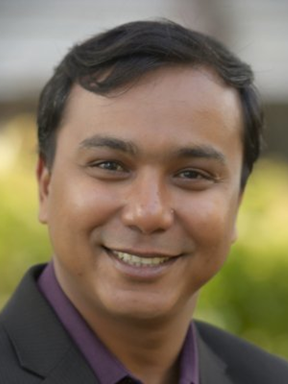 Speaker: Asim Biswas
Speaker: Asim Biswas
Title: Machine learning and computer vision applications for digital soil sensing and management
Bio: Asim was born and brought up in a small subsistence farm family from a remote village (Poragachha, Asannagar, Nadia) in West Bengal, India. Working and participating in farm activities and the ‘magic in soil that turns a small seed into a big plant or a huge tree’ always fascinated him about soil. Same way ‘why a field soil can grow plants better and another is not’ made him curious. All the curiosities pushed him to start his first degree, BSc (hons) in Agricultural Sciences with soil science and soil testing as major and minor subjects of study. He received BSc in Agriculture (2004) from the Bidhan Chandra Krishi Viswasvidyalaya, the state agricultural university and continued his study to secure a MSc in Soil Science (2006) from the University of Agricultural Sciences, Bangalore, India. Asim continued his study and research on soil and soil spatial variability at the University of Saskatchewan, SK, Canada, and secured PhD in Soil Physics in 2011. His intention to travel the world took him to Australia for his first job as an environmental research scientist/post-doctoral fellow at the Commonwealth Scientific and Industrial Research Organisation (CSIRO). In 2013, he joined the Department of Natural Resource Sciences at McGill University as an Assistant Professor in May 2013 and moved to University of Guelph on 1st June 2016. Now, he is a leading scientist in data driven sustainable soil management and works to increase the productivity and resilience of land-based agri-food production systems in an environmentally sustainable manner.
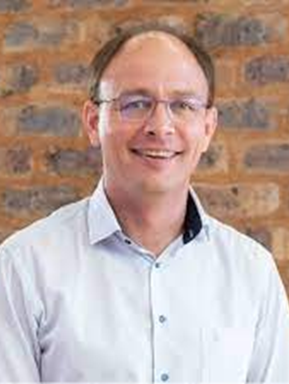 Speaker: Bernard Slippers, Wynand Steyn and Nicky Creux
Speaker: Bernard Slippers, Wynand Steyn and Nicky Creux
Title: Opportunities and challenges for digitisation of agriculture in South Africa
Bio: Bernard Slippers is a Professor in Genetics at the University of Pretoria (UP). He is a research leader of the Tree Protection Co-operative Programme and Centre of Excellence in Tree Health Biotechnology at the Forestry and Agricultural Biotechnology Institute (FABI). His research focus is on the molecular ecology and evolution of insects and micro-organisms that affect tree health, and anthropogenic influences on it. He regularly participates in international scientific meetings and has published widely in international peer-reviewed journals and other scholarly sources. Bernard has been involved in the supervision or co-supervision of numerous post-graduate students. He participates in advising governmental and private organizations on tree protection issues in various parts of the world. The University of Pretoria (UP) is a leading research university in South Africa and one of the largest in the country. UP celebrated its Centenary in 2008. The Forestry and Agricultural Biotechnology Institute (FABI) is an internationally recognized, inter-disciplinary research institute in the broad field of Plant Biotechnology. The Tree Protection Co-operative Programme is a co-operative venture between forestry companies, private forest owners, other research organizations and government in South Africa, and the University of Pretoria. The Centre of Excellence in Tree Health Biotechnology is a government-funded program focusing on indigenous tree health. These programs are the largest in the world focusing on tree health.
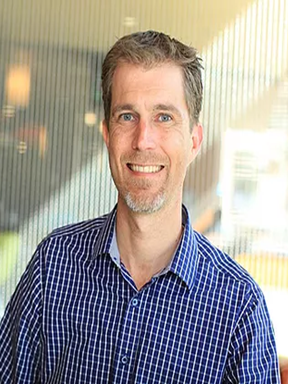 Speaker: Steve Mantle
Speaker: Steve Mantle
Title: Planes, Drones, & ATVs: Harnessing TBs of Imagery & Sensor Data to Increase Crop Production in Orchards
Bio: Steve Mantle is the founder of innov8.ag, a Walla Walla, Washington-based agtech startup and Microsoft-partnered company. Prior to embarking on the startup, Mantle spent 12 years at Microsoft where he most recently focused on Microsoft’s fastest growing product line, Azure Cloud. His leadership skills contributed to growing Azure from a $100M to a $10B+/year business over six years. After working at the Microsoft headquarters in Seattle, Mantle relocated his family to Walla Walla in the summer of 2018. He sees this location as the perfect base for ag startups, given the convergence of progressive farmers and three colleges with strengths in agriculture, engineering, science, as well as established ag manufacturers, strong connectivity providers and a highly collaborative business climate. An Australian by birth, Mantle earned an MBA from the University of Washington.
Session 2: Agritech industry implementations
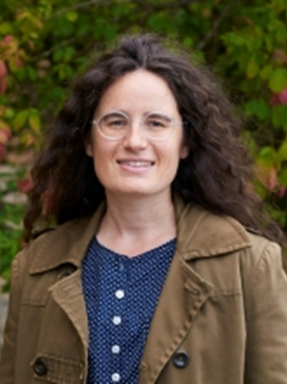 Speaker: Elsa Vasseur, McGill University
Speaker: Elsa Vasseur, McGill University
Title: Measuring and monitoring animal welfare for sustainable livestock farming: a mobility and big data challenge
Bio: Dr. Elsa Vasseur is an Associate Professor at McGill University and the Chairholder of the NSERC/Novalait/Dairy Farmers of Canada/Valacta Industrial Research Chair in Sustainable Life of Dairy Cattle since 2016. Dr. Elsa Vasseur’s academic background is multidisciplinary and areas of expertise are many: i) applied animal behaviour science (ethology) for a better understanding of animal needs; ii) the development of outcome measures of welfare for animals in confinement and the links in between those outcomes and the risk factors in housing and management; iii) the measures of long-term (herd) profitability and animal survival (longevity) in dairy herds; iv) the integration of animal welfare and longevity (economics) with the other components of sustainability of farming (environmental impacts, social acceptability); and v) the study of knowledge and technology transfer methods to encourage adoption of new practices by farmers. Her international interests and experience include a CIDA project in the DR Congo looking at reducing poverty through renewable charcoal-based agroforestry systems; and an on-going project financed by the Food and Agriculture Organization of the United Nations (UN-FAO) to understand the performance and adaptation of livestock systems in milk and meat sectors in Senegal in the context of climate change.
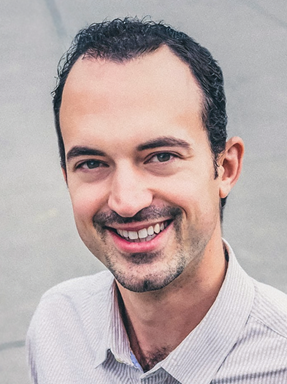 Speaker: Adam Greenberg, CEO of iUNU
Speaker: Adam Greenberg, CEO of iUNU
Title: A brief history of food production and a look towards the future
Bio: Adam Greenberg is the CEO of iUNU, a Seattle-based startup that provides AI and computer vision technology to help greenhouse growers optimize their operations. iUNU & Mr. Greenberg have been recognized with a Medal of Excellence nomination from Greenhouse Grower, best new indoor growing technology from United Fresh Produce Association, 2021 Solution of the Year from AgTech Breakthrough, and at age 30 Adam became a member of GPN’s 40 Under 40 Class of 2020. He has been a speaker at numerous seminars and conferences such as Hemp Industry Daily, MjBizCon, Indoor AgCon, AgChem, University of Maryland’s MAVRIC, and UC Davis’s Seed Central. Mr. Greenberg created an AI symposium and a two-part urban agriculture series for Congressional staffers on Capitol Hill last year. He was a guest on recent Farm Traveler, Crop Talk, and Informing Choices podcasts, and Mr. Greenberg will lead AI panels at the upcoming IndoorAgCon as well as Indoor Ag Tech Conferences in 2021
Adam founded iUNU in 2013 to revolutionize the greenhouse industry by using machine vision technology and iUNU recently closed its Series A funding of $7 million. The company began 2021 with just under 20 employees and is already approaching 75 as of the third quarter.
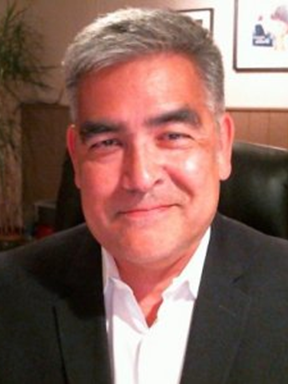 Speaker: Eric Weaver
Speaker: Eric Weaver
Title: 5G and IoT join the battle to fight food waste and hunger
Bio: Eric Weaver is a digital transformation veteran who has spent 30 years counseling large enterprises and governmental agencies on disruption and transformation. Weaver leveraged his first career in enterprise software development to become one of the very first digital marketers in 1990, after which he has served as CEO, chief strategist, creative director, and client lead for major management consultancies and ad agencies. He has counseled the leadership teams at over 80 blue-chip brands on everything from brand building to digital operations to blockchain use cases – and has built and led creative, production and strategy teams in London, New York, Los Angeles, Washington DC, Seattle, Detroit and Cincinnati.
Most recently the VP of the Xerox Customer Experience Practice, Weaver oversaw the company’s $550M marketing services team and led efforts around digital ledger technologies. He left Xerox in 2018 to launch Transparent Path – an early warning system for the food supply chain that combines IoT-based sensors, blockchain data sharing, and predictive analytics. Weaver also sits on the advisory boards for startups and academic organizations focused on food innovation, ethical minerals/mining, and blockchain technologies.
Keynote Panel Discussion
Panelists: Asim Biswas, Bernard Slippers, Wynand Steyn, Nicky Creux, Sunil Maharaj, Steve Mantle, Elsa Vasseur, Adam Greenberg, Eric Weaver
Co-Chairs
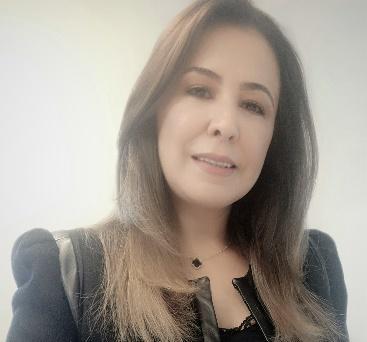
Halima Elbiaze (Senior Member, IEEE) is currently a full Professor with the Department of Computer Science, Université du Québec à Montréal, Montréal, QC, Canada, where has been serving since 2003. She is also serving as assistant director of LATECE Research lab on emerging Internet Technologies. Her research interests include B5G networks, IoT, cloud/Edge computing, and quality of service management in optical and wireless networks. Halima has authored and coauthored many journals, patents, and conference papers. Currently, her research is at the intersection between emerging technologies and its application in connected health, sustainable agriculture, and other segments to improve quality of life, equity, and inclusion in eco-friendly environments.
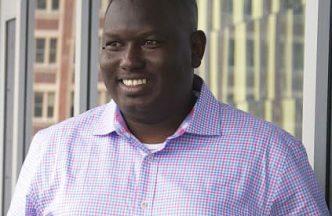 Abdoulaye Banire Diallo is a Professor and Director of the Bioinformatics Lab at Université du Québec à Montréal (UQAM). He is also a co-founder and Chief Scientist of at My Intelligent Machines (MIMs). Currently, Abdoulaye’s research is at the intersection between bioinformatics, artificial intelligence and genomics. He is developing technologies that empower life scientists in the health and agrigenomics sectors to address important questions by providing algorithms and machine learning methods to detect, study and monitor pathogens in epidemiological surveillance, to include genomic precision in livestock production models, and to model and monitor biodiversity in agriculture and forestry. He also provides Artificial Intelligent -powered technologies to help deliver to life science communities an easy-to-use and integrated genomic informed solutions.
Abdoulaye Banire Diallo is a Professor and Director of the Bioinformatics Lab at Université du Québec à Montréal (UQAM). He is also a co-founder and Chief Scientist of at My Intelligent Machines (MIMs). Currently, Abdoulaye’s research is at the intersection between bioinformatics, artificial intelligence and genomics. He is developing technologies that empower life scientists in the health and agrigenomics sectors to address important questions by providing algorithms and machine learning methods to detect, study and monitor pathogens in epidemiological surveillance, to include genomic precision in livestock production models, and to model and monitor biodiversity in agriculture and forestry. He also provides Artificial Intelligent -powered technologies to help deliver to life science communities an easy-to-use and integrated genomic informed solutions.
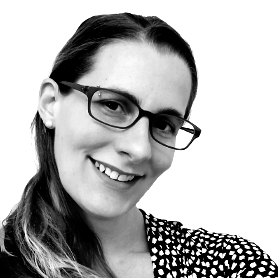 Colleen Josephson is a research scientist in distributed edge within the CTO office at VMware. She is also co-chair of the Green G working group within the ATIS Next G Alliance. Her research interests include wireless communications and sensing, with a focus on technologies to enable sustainability. Her most recent work focuses on agricultural sensing. Colleen completed her PhD in Electrical Engineering at Stanford University, where she was named 2020 Rising Star in EECS. Before beginning her PhD, she worked at Cisco Meraki as a wireless engineer.
Colleen Josephson is a research scientist in distributed edge within the CTO office at VMware. She is also co-chair of the Green G working group within the ATIS Next G Alliance. Her research interests include wireless communications and sensing, with a focus on technologies to enable sustainability. Her most recent work focuses on agricultural sensing. Colleen completed her PhD in Electrical Engineering at Stanford University, where she was named 2020 Rising Star in EECS. Before beginning her PhD, she worked at Cisco Meraki as a wireless engineer.
